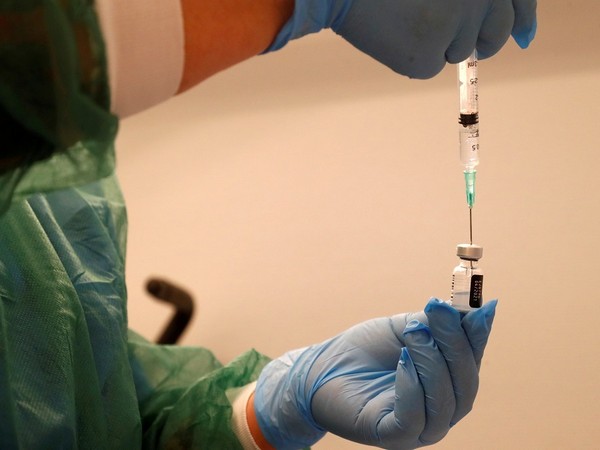Health News Roundup: Brazil approves Pfizer vaccine for children as young as six months; Taiwan eyeing earlier end to COVID quarantine for arrivals and more
Following is a summary of current health news briefs. Brazil approves Pfizer vaccine for children as young as six months Brazilian national health regulator Anvisa has approved the COVID-19 vaccine produced by Pfizer and BioNTech for children aged between six months and four years, the government body said in a statement Friday night.

Following is a summary of current health news briefs.
Brazil approves Pfizer vaccine for children as young as six months
Brazilian national health regulator Anvisa has approved the COVID-19 vaccine produced by Pfizer and BioNTech for children aged between six months and four years, the government body said in a statement Friday night. The move broadens the availability of the vaccine, which is sold under the brand name Comirnaty for adults and is already available in Brazil for older age groups.
Taiwan eyeing earlier end to COVID quarantine for arrivals
Taiwan is eyeing an earlier end to its mandatory quarantine for all arrivals and has been making relevant preparations, Premier Su Tseng-chang said on Friday, as the government continues to ease controls put in place to contain the spread of COVID-19. Taiwan has kept its entry and quarantine rules in place as large parts of the rest of Asia have relaxed or lifted them completely, though in June it cut the number of days spent in isolation for arrivals to three from seven previously.
U.S. FDA approves bluebird bio's gene therapy for a rare neurological disorder
The U.S. Food and Drug Administration (FDA) has approved Bluebird bio's gene therapy for the treatment of a rare neurological disorder, the company said late on Friday. "SKYSONA is the first FDA approved therapy shown to slow the progression of neurologic dysfunction in boys" with early, active Cerebral Adrenoleukodystrophy (CALD), the company said in a statement, saying CALD is a "devastating and fatal neurodegenerative disease."
Mainland China reports first imported monkeypox case
The Chinese city of Chongqing reported one case of the monkeypox virus infection on Friday in an individual who arrived from abroad, marking mainland China's first known monkeypox infection amid the recent global outbreak of the virus. The transmission risk is low as the individual was put in quarantine upon arrival in Chongqing, the municipal health commission said in a statement. All close contacts have been isolated and are under medical observation.
WHO 'strongly advises against' use of two COVID treatments
Two COVID-19 antibody therapies are no longer recommended by the World Health Organization (WHO), on the basis that Omicron and the variant's latest offshoots have likely rendered them obsolete. The two therapies - which are designed to work by binding to the spike protein of SARS-CoV-2 to neutralize the virus' ability to infect cells - were some of the first medicines developed early in the pandemic.
France's health body warns of the resurgence of COVID virus in the country
France's national health body warned on Friday of a resurgence of COVID-19 cases in the country and urged people to continue to get vaccinated to protect themselves against the virus. The Sante Publique France (SPF) body said that during the week of Sept 5-Sept 11, there had been 186 confirmed COVID cases for every 100,000 people in France - a figure up 12% versus the previous week - representing an average of around 18,000 new cases per day.
Teva Pharm expects to start paying U.S. opioid settlement in 2023
Teva Pharmaceutical Industries expects to finalize an opioid settlement in the United States by year-end and start paying in 2023, its chief executive said on Sunday, while also questioning the company's very low share price. After years of negotiations, Israel-based Teva in July proposed a $4.35 billion nationwide settlement - mostly cash and partly medicines that will amount to $300 million to $400 million over 13 years - to resolve its opioid lawsuits.
(With inputs from agencies.)
ALSO READ
GLOBAL MARKETS-Asian stocks subdued on yen caution, US inflation in focus
US Defence Secy Austin says 'don't have evidence' of Israel committing genocide in Gaza
US Defence Secy Austin says 'don't have evidence' of Israel committing genocide in Gaza.
India, Kazakhstan assess security challenges, exchange views on cross-border terrorism in South Asia
GLOBAL MARKETS-Asian stocks firm, take China Fitch downgrade in their stride










